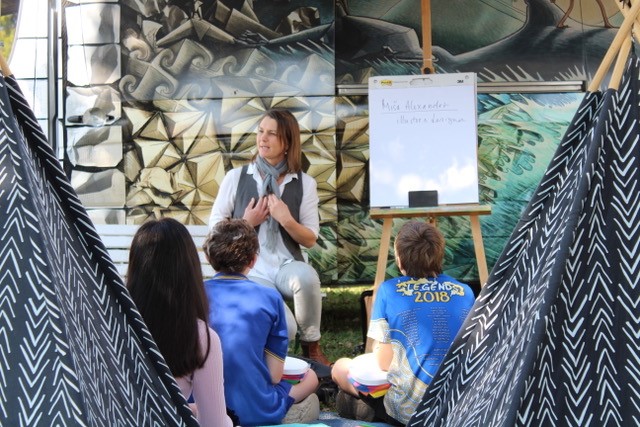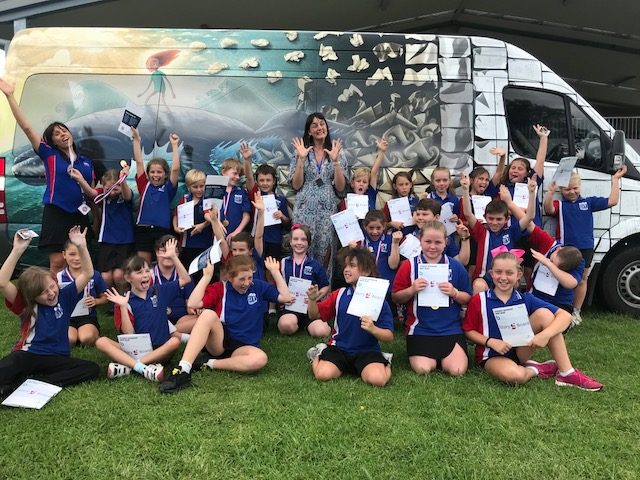Míša is passionate about art and loves to inspire and encourage students of all ages. In this workshop students will first explore and discuss art portraiture in history and the evolution of style followed by learning a practical guide to proportions of the facial structure and how to create a face.
Students will then learn to think outside the box with a continuous line drawing of an object (ie. A pear) followed by another continuous line drawing of themself using the right side of the brain to look at the light & shadows as well as the details in their faces. They will then turn this base drawing into a masterpiece with colour, texture and collage.
Each art session is tailored to specific age groups.
Topics covered
- Inspiration & history of art
- Defining spatial awareness
- Exploring abstract thinking
- Overcoming failure
- Learning new things
Curriculum outcomes
- Use materials, techniques and processes to explore visual conventions when making artworks
- Thinking imaginatively, creatively and interpretatively
- Expressing themselves
- History


